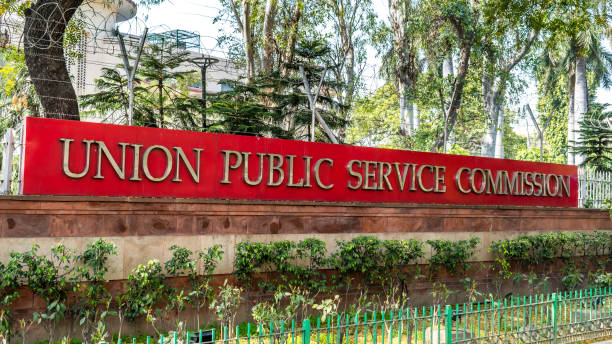INTRODUCTION:
The UPSC (Union Public Service Commission) Psychology syllabus offers a comprehensive exploration of the fundamental principles, theories, and applications within the realm of psychology. Designed to equip candidates with a deep understanding of human behavior, cognition, and mental processes, the syllabus covers a diverse array of topics. These include developmental psychology, social psychology, cognitive psychology, personality theories, psychological testing, and abnormal psychology.

The UPSC (Union Public Service Commission) Psychology syllabus encompasses a wide range of topics aimed at providing candidates with a comprehensive understanding of the principles, theories, and applications of psychology. Here’s a general outline of the UPSC Psychology syllabus:
The UPSC (Union Public Service Commission) Psychology syllabus is vast and covers various aspects of psychology.
Here’s a detailed breakdown:
- Foundations of Psychology
- Introduction to Psychology: Nature, Scope, and Methods
- Methods of Psychology: Experimental, Observational, Clinical, and Survey Methods
- Research Methods in Psychology: Experimental Design, Sampling Techniques, Data Analysis
- Developmental Psychology
- Life Span Development: Prenatal, Infancy, Childhood, Adolescence, Adulthood, Aging
- Theories of Development: Piaget, Vygotsky, Erikson, Kohlberg
- Developmental Milestones: Physical, Cognitive, Emotional, and Social Development
- Social Psychology
- Social Perception: Attribution, Stereotyping, Prejudice
- Interpersonal Attraction, Attitudes, and Group Processes
- Social Influence: Conformity, Obedience, Compliance
- Cognitive Psychology
- Perception: Sensation, Attention, Perception of Patterns, Depth, and Movement
- Memory: Encoding, Storage, Retrieval, Forgetting
- Thinking and Problem Solving: Reasoning, Decision Making, Judgment
- Biological Bases of Behavior
- Nervous System: Structure, Function, Neurons, Neurotransmitters
- Brain and Behavior: Localization of Function, Neuroplasticity
- Endocrine System: Hormones, Stress Response
- Motivation and Emotion
- Theories of Motivation: Instinct, Drive Reduction, Incentive, Humanistic
- Biological and Psychological Aspects of Emotion: Physiological Responses, Theories of Emotion
- Motivation and Emotion in Behavior: Hunger, Thirst, Sexuality
- Personality
- Theories of Personality: Freudian, Neo-Freudian, Trait, Social-Cognitive
- Assessment of Personality: Psychological Testing, Projective Techniques, Self-report Inventories
- Factors Influencing Personality: Genetics, Environment, Culture
- Abnormal Psychology
- Concept of Abnormality: Definitions, Historical Perspectives
- Classification of Disorders: DSM-5, ICD-10
- Major Disorders: Anxiety, Mood, Schizophrenia, Personality Disorders
- Therapeutic Interventions
- Psychotherapy: Psychodynamic, Behavioral, Cognitive, Humanistic
- Biomedical Therapies: Medication, Electroconvulsive Therapy (ECT), Psychosurgery
- Community Psychology: Prevention, Crisis Intervention, Rehabilitation
- Psychological Testing
- Types of Tests: Intelligence, Aptitude, Achievement, Personality
- Test Construction and Standardization: Reliability, Validity, Norms
- Interpretation of Test Scores: Individual and Group Differences
- Applications of Psychology
- Industrial and Organizational Psychology: Personnel Selection, Job Design, Work Motivation
- Health Psychology: Stress Management, Health Promotion, Behavioral Medicine
- Environmental Psychology: Human-Environment Interaction, Environmental Stressors, Conservation Behaviour.
- Health and Clinical Psychology:
- Health Behavior and Promotion: Understanding Health-related Behaviors, Disease Prevention
- Clinical Assessment and Diagnosis: Psychodiagnostic Tools, Case Formulation
- Evidence-based Interventions: Cognitive-Behavioral Therapy (CBT), Mindfulness-based Approaches, Acceptance and Commitment Therapy (ACT)
- Forensic Psychology:
- Psychology and the Legal System: Criminal Behavior, Offender Profiling, Eyewitness Testimony
- Assessment and Treatment of Offenders: Risk Assessment, Rehabilitation Programs
- Psychology in the Courtroom: Expert Witness Testimony, Jury Decision Making
- Educational Psychology:
- Learning Theories: Behaviorism, Constructivism, Social Learning Theory
- Motivation in Education: Goal Setting, Intrinsic and Extrinsic Motivation
- Classroom Management: Strategies for Effective Teaching, Student Engagement
- Community Psychology:
- Community Assessment and Intervention: Needs Assessment, Program Evaluation
- Social Change and Advocacy: Empowerment, Social Justice, Human Rights
- Prevention and Early Intervention: Addressing Social Issues, Building Resilient Communities
- Environmental Psychology:
- Psychological Impact of Environmental Factors: Noise, Crowding, Urban Design
- Sustainable Behavior: Promoting Pro-environmental Attitudes and Actions
- Biophilic Design: Connection with Nature, Psychological Well-being
- Neuropsychology:
- Brain-Behavior Relationships: Localization of Function, Neurological Disorders
- Neuropsychological Assessment: Cognitive Testing, Brain Imaging Techniques
- Rehabilitation and Intervention: Cognitive Rehabilitation, Behavioral Interventions
- Psychology of Work and Organizations:
- Organizational Behavior: Leadership, Team Dynamics, Organizational Culture
- Human Resource Management: Recruitment, Selection, Training, Performance Appraisal
- Work-Life Balance: Stress Management, Flexible Work Arrangements, Employee Well-being

CONCLUSION:
the UPSC Psychology syllabus serves as a comprehensive roadmap for candidates aiming to understand the intricacies of human behavior and psychological processes. Through its coverage of developmental, social, cognitive, and abnormal psychology, among other key areas, the syllabus equips aspirants with a robust foundation in psychological theory and practice.
For the 2024 UPSC Calendar; CLICK HERE
For Detailed Information; ClICK HERE